
Geographical Indications
What are they?
Geographical Indications (GIs) are a type of trademark that only allow products to use certain names if they are produced in a specific region.
In the same way you can only call sparkling wine that comes from the Champagne region of France “Champagne”, the European Union (EU) wants to restrict the use of cheese names here in Australia.
How will this impact you?
The EU is negotiating to impose a GIs regime on Australia. If the EU succeeds, the use of common cheese names produced in Australia such as Feta and Parmesan will be restricted.
The EU’s rules could also restrict the use of packaging and labelling that could evoke a protected EU GI, including flags, colours or images that highlight a products European heritage.
This means it will be harder to recognise the Australian brands of many cheese varieties.
Would you be confident purchasing Parmesan if it wasn’t called Parmesan? Or Feta if it wasn’t called Feta? Would you trust that the Australian cheese you’re purchasing (now labelled differently) will be what’s required for that recipe?
How could this impact Australia’s dairy industry?
Australia has a proud multicultural history filled with Europeans building successful cheese businesses that supply Aussies with great tasting cheese.
The EU's trade restrictive GIs regime would impact many local cheese brands – and at an estimated cost of $70-90 million per annum in the early years of the GIs regime's implementation.
Aussie farmers and regional communities, where many dairy product manufacturing facilities are located, could also be impacted. Estimates suggest up to 1,000 people could lose their jobs
Hear from Aussie cheese masters
Hear from the Australian dairy industry's greatest cheese connoisseurs and makers on what they think about the GIs regime in the following case studies.
-
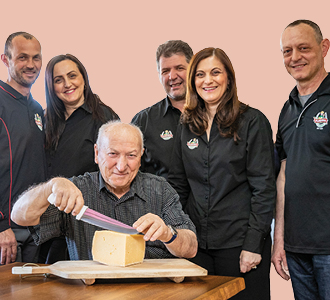
Mauro Montalto - Floridia Cheese Co
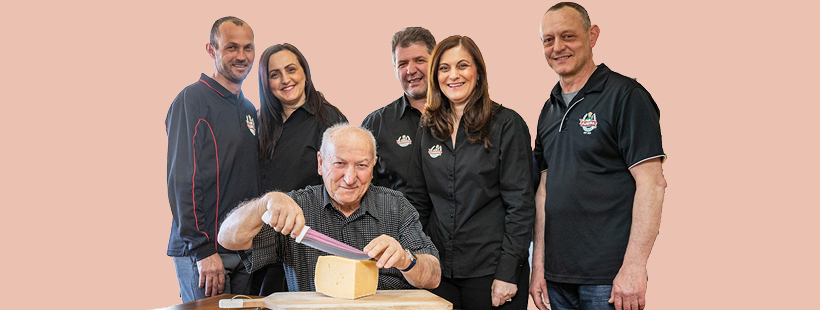
Mauro Montalto - Floridia Cheese Co
Mauro is a cheese maker at Floridia Cheese Co, a family business that has been producing traditional Italian cheese products since 1955. Floridia's origins trace back to Sicily, Italy, where Mauro’s grandfather first began making cheese. After migrating to Australia and bringing his skills, recipes, and methods with him, his traditions have been passed down through his family to turn the business into the respected and authentic Italian cheese manufacturer it is today.
For a family business like Floridia, the proposed GI regime would affect more than just the names of the products they produce. Known for being 'Traditionally Italian, Proudly Australian', Floridia is proudly based upon its Italian heritage and history, yet under the strict GI regime, so many aspects of their business, including their logo and packaging, might need to be changed. After successfully operating in Australia for over 60 years, Mauro and his family are concerned about what the GI regime could mean for the future of their business.
"It would greatly affect our export market if we weren't able to use the traditional names that our customers come to us for, but there would also be so many expenses involved in rebranding and repackaging all of our existing products."
"A major concern is also having to re-educate the consumer. Many of our customers come to us because they're looking for authentic Italian cheeses, and without being able to use the traditional names or showcase our Italian heritage through our products, how do we appeal to them?"
"I honestly think [the proposed GI regime] is a big slap in the face, and I find it a little bit insulting. The recipes that we use are what our grandfather handed down to us, and we're very dedicated to upholding our Italian traditions – so why should we have to change what we call our products?"
-
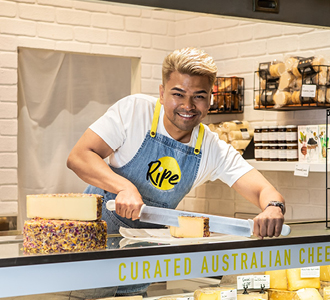
Hakim Halim - RIPE Cheese
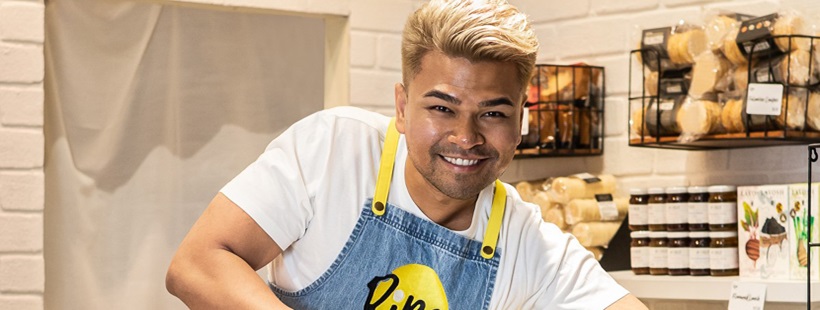
Hakim Halim - RIPE Cheese
Hakim is a cheesemonger at RIPE Cheese, an exclusively Australian cheese retailer that stocks over 50 varieties of Australian cheese. Hakim, a digital marketer by trade and lover of all things food, decided to start RIPE when he discovered that no other retailer in the country (or the world) only features and supports Australian cheese products. A self-described champion of the Australian dairy industry, Hakim's passion is sharing the story of the local cheese makers he supports with his customers, and allowing them to experience all the amazing cheeses that our country has to offer.
If the proposed GI regime comes into effect, the biggest issue a retailer like Hakim would face is having to completely re-educate consumers on new names for each type of cheese, without being able to use the European names they are currently familiar with as a guide. He worries that without being able to reference popular cheeses like feta, halloumi or parmesan as they're traditionally known, it will be challenging to convince Australian consumers to opt for locally made products under a different name.
"As a cheese retailer I already find it challenging to convince Aussies to buy locally produced cheese; consumers are so familiar with the European names that often this is exclusively what they want to purchase, so to restrict the use of these names would be a challenge for Australian consumers and businesses alike."
"If this comes into effect and locally produced dairy will need to be sold under new names, I think it will take years for Australian consumers to become familiar with, let alone consider purchasing, Australian-made cheese."
-

Russell Smith - Judge and International Cheese Consultant

Russell Smith - Judge and International Cheese Consultant
Russell is an International Cheese Consultant, who judges cheese competitions around the globe, and is the Chief Judge of the Australian Grand Dairy Awards, Australia’s most prestigious dairy competition. Russell discovered his love of cheese through his cheese retail and distribution business where his passion drove him to spend two years gaining a certificate in cheesemaking.
Now, Russell spends time each year travelling to the United States, Europe, Asia and Australia to judge World Cheese Championships and runs cheese and sensory education training for dairy buyers, retailers and other professionals.
“I believe the introduction of Geographical Indications would mean three key things for Australian cheese, a loss of heritage, confusion for consumers and ultimately loss of local products off our shelves.
Imposing GIs would mean denying [the affected] cheeses their heritage and origins. Both the European Union and the rest of the world should embrace cheese making traditions including the country from where they originated, while celebrating their acceptance in cultures other than the original country of origin.
The very rich heritage and the stories that go with the evolution of cheese making are an integral part of many consumers enjoyment and influence their individual choices. These stories should not be separated from the narrative or we diminish the history, politics, religious and the many other cultural aspects of our cheese history.
And it’s not just the cheeses that lose out. The immigrants, Greek, Italian, Swiss, Austrian, French, German and more who have brought their cheese culture and recipes with them over the last 60-70 years will experience not just the loss of connection with their cheese’s origins but an emotional and economic fallout.
As a retailer, I believe the re-naming of many of our cheese styles will result in confusion by the Australian consumer and by the time the public begin to understand what has happened, many of these products will have ceased to be manufactured in Australia. I don’t think it will take long for imported cheeses bearing the cheese names we have come to recognise to replace our Australian products.”
-
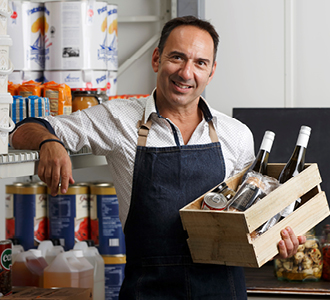
Bill Tzimas - Bill’s Farm Food Service
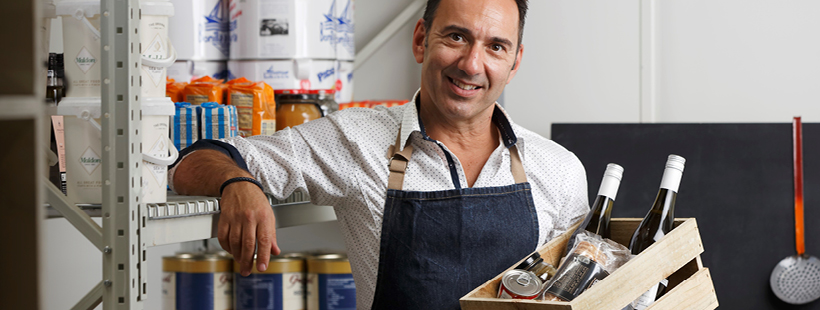
Bill Tzimas - Bill’s Farm Food Service
Bill, owner and founder of Bill’s Farm Food Service, first entered the cheese industry as a retailer 30 years ago, leaving behind a teaching career to follow his love of cheese. Eventually opening up his own store, Bill engages with chefs who come in up to three times a day to buy cheese for breakfast, lunch and dinner services.
Over time, Bill’s Farm Food Service began to make its own local cheese, drawing inspiration from European methods to create cheeses like halloumi, feta, cheddar and parmesan.
“I absolutely love being a part of the dairy industry, nothing brings me more joy than seeing a new cheesemaker come into the industry, get creative with their cheesemaking styles and take a risk. I take pride in the fact that Bill’s Farm Food Service helps to support up and coming cheesemakers.”
“From a retail perspective, the proposed GI regime would be detrimental to Australian cheese makers. It has taken a great deal of time and hard work to help consumers recognise the quality of Australian-made cheese, and the proposed GI regime would undo all that. Consumers would have to completely relearn Australian cheeses.”
-
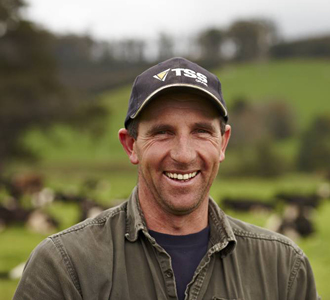
Stuart Burr - Dairy Farmer
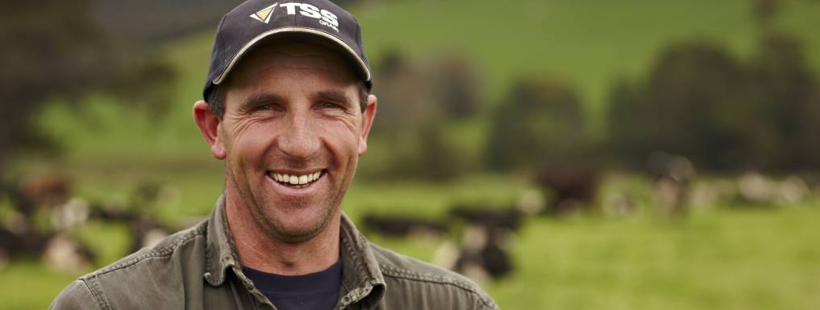
Stuart Burr - Dairy Farmer
Stuart is a dairy farmer located in Ringarooma, Tasmania and has been working in the dairy industry since leaving high school. At the age of 15, Stuart was introduced to dairy farming after starting a job on a local dairy farm and never looked back.
For the past 11 years, Stuart has been a share farmer who owns all the cattle and machinery to produce milk, which he supplies to Fonterra to produce cheese, creams, milks, and other dairy products.
Stuart is proud to be a part of the Australian dairy industry.
“I absolutely love getting to work outside and with animals. Being able to be my own boss at the same time makes it all the better.
If the GI regime were to succeed, I believe Australian consumers would be confused and as a result deterred from purchasing Aussie cheeses. The flow on effect to farmers would mean less demand and therefore less work.
Australians purchasing dairy products that come from Australian milk and are made right here provides the best return for Aussie farmers and local communities – and the GI regime would have a huge impact on that.”
-
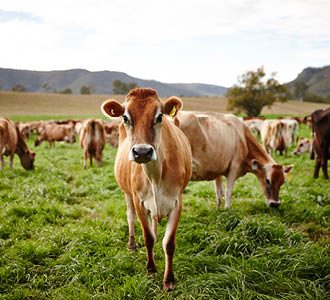
Industry perspective
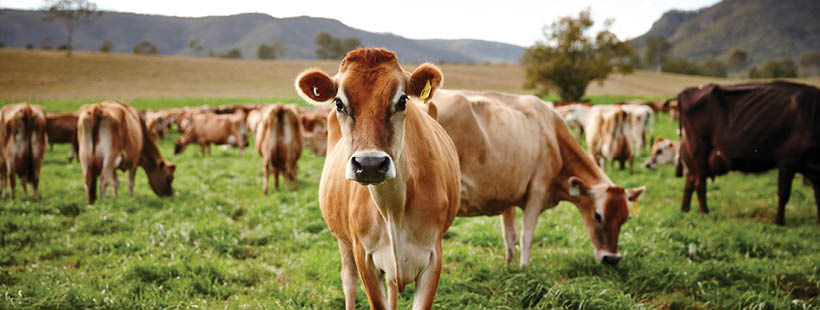
Industry perspective
It’s important for Australian dairy farmers and producers to be aware and engaged with GIs. The following resources provide more information about the proposed changes, and what it means for Australian dairy:
Australian Dairy Industry concerns with the Australia-EU trade agreement.
Industry support
The Australian dairy industry's organisations are coming together to support Aussie dairy producers.
Dairy Australia, Australian Dairy Farmers, Australian Dairy Products Federation, and state farming organisations seek to ensure the ongoing use of common cheese names that are part of the public domain.
These organisations are engaging with the Australian Government and the broader dairy industry to increase awareness of the risks involved in the GIs regime.
It's so you can continue buying the cheeses you know, and the industry's workers can continue doing what they do best – make delicious Australian cheese.
-
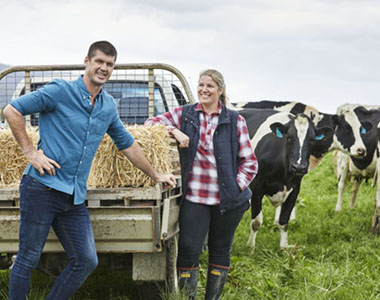 Article
ArticleBuy. Support. Enjoy Aussie Dairy
Does supporting local matter to you? Find out how you can get behind Aussie farmers and do good for your health and our communities.
Read more -
 Article
ArticleIndustry and people
Australian dairying is a huge industry that employs 43,000 Australians and feeds millions every day.
Read more -
 Article
ArticleAustralian Dairy Sustainability Framework
Australian dairy is serious about being sustainable. Learn about our internationally recognised Sustainability Framework and our commitments to our people, animals, the community and planet.
Read more